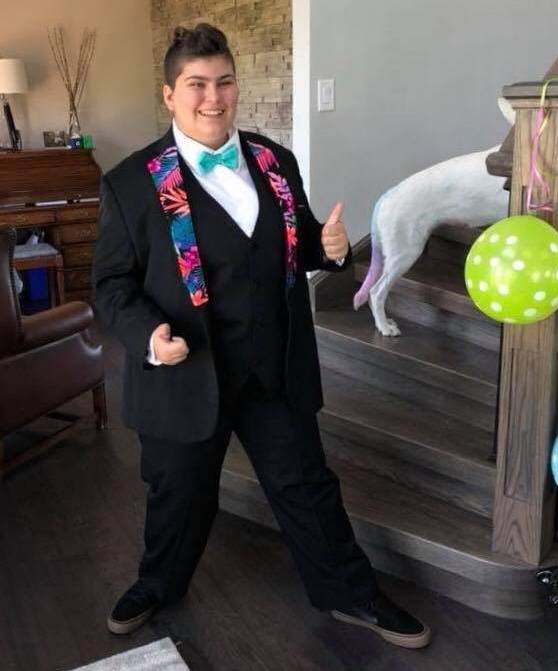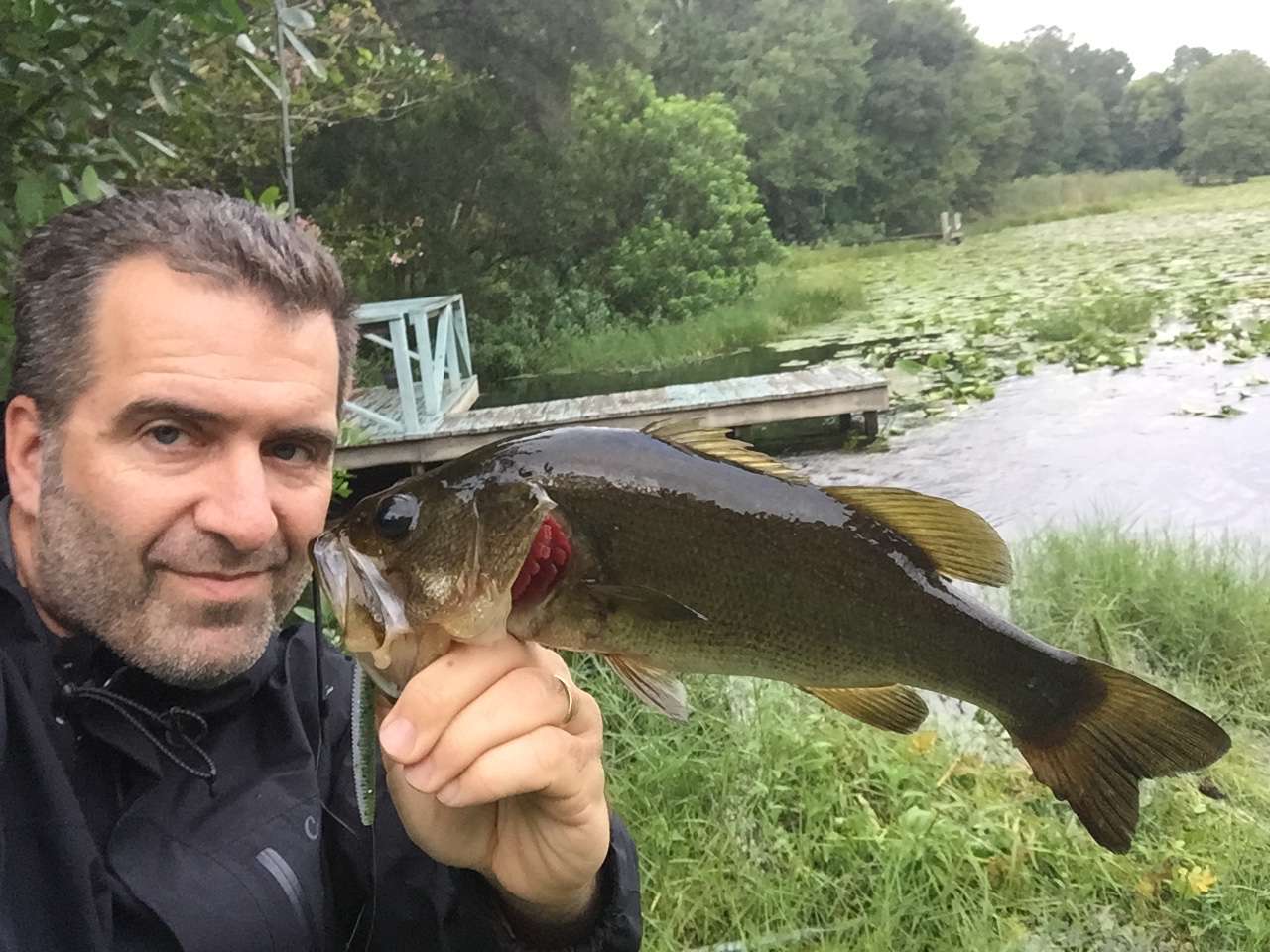
A week before Autism Awareness Month commenced, Cadance Mercer was elated to see Jeff Gustafson win the Academy Sports + Outdoors Bassmaster Classic presented by Toyota on the Tennessee River, but not for reasons you might expect.
Was it Gussy’s dominant performance with the moping technique he wields with icy competence? Nice, but not a big deal to the 19-year-old daughter of Bassmaster Emcee Dave Mercer.
How ‘bout a fellow Canadian bagging the inaugural Ray Scott trophy? Cool, but not that important.
Gussy’s second all-smallmouth victory (also the 2021 Elite) on a traditionally largemouth river? Nah.
So, what brought a smile to this beautiful autistic girl’s face?
Sheds. Whitetail deer sheds.
“Cadance is really into taxidermy, and she was happy Gussy won because he brings her deer antlers,” Mercer said.
That level of specificity — even at the exclusion of big picture grandeur — defines one of the most important attributes common to autistic people.
“Autism is hyper focus,” Mercer said. “That’s what makes autistic people so amazing at many things like art that take an incredible amount of focus that the average person’s mind won’t allow.
“Autism is so all over the place. You have kids that are non-verbal and you have kids like Cadance that are high in the spectrum and won’t shut up.
“They’ll tell you every little detail about some subject they get obsessed about.”
For example, Cadance is a big animal lover, particularly wolves. Apparently, her species knowledge is pretty impressive.
“If you talk to her about wolves, you’d think she lived with wolves with 10 years,” Mercer chuckled. “It’s amazing how, if she gets motivated on a topic, there are no boundaries.”
Puzzle pieces
Every April, B.A.S.S. embraces the simple, yet deeply resonating, message driving Autism Awareness Month. According to advocacy group Autism Speaks, the celebration starts with United Nations-sanctioned World Autism Awareness Day (April 2) and stresses a worldwide message of inclusivity.
By definition, autism spectrum disorder (Autism) includes a wide range of conditions such as limited social skills, repetitive behaviors, speech impediments and nonverbal communication. According to the Centers for Disease Control, Autism affects about 1 in 36 U.S. children.
Given the spectrum diversity, each autistic person has a distinct set of strengths and challenges. As Mercer notes, that’s why the autism symbol is a puzzle piece — every autistic person is different, and they each have their own unique way of fitting into life’s puzzle.
Impressively, autistic people often leverage their intense focus with astounding results. From detail-centric minds flow fountains of creativity.
“Cadence is a very talented artist; she’s about to finish her first year of college in advanced art,” Mercer said. “Her goal in life is to be a taxidermist after college. I have no doubt that if we get her through school, she’ll go on to do amazing things.
“There were plenty of teachers along the way that said ‘If we can get her through high school we’ll be good.’ Cadance didn’t know that and she’ll never know that.”
See, that’s the thing; autistic people may not always process life like the masses and their ways of expressing what they perceive might go deeper than most. But when we look without filters, we see that their ways are pretty amazing.
Autism closes some doors, but it opens others. Grasp this point and it’s much easier to be understanding, respectful — kind.
The tough stuff
That’s an important gut check because, as Mercer explained, autism can expose a person to sensory overload. Hyper awareness fuels astounding abilities, but it can also lead to sudden onsets of extreme anxiety, often triggered by factors most overlook.
“If you think about all the things that so many of us ignore — like the buzzing of a fluorescent light,” Mercer said. “Everything about a theme park is (difficult for an autistic person) with all the sounds and lights.”
Mercer recalls a rainy day at his brother’s cabin when the family gathered in front of the TV. What should have been a relaxing, low-key morning became tortuous for Cadence as the humming sound of an old tube style TV made her cover her ears.
“It’s like you trying to sit down and work out a complicated math problem and everybody behind you starts yelling numbers,” Mercer explained. “That’s why you often see Autistic people wearing noise-cancelling headphones. They’re not always listening to music, they’re using the headphones to deaden noise around them.”

Sometimes it’s the confines of a crowded room, other times, it’s a seemingly miniscule disturbance. Cadance once found the persistent ratting of loose trim on Mercer’s truck unbearable.
Rationality does not always define reality. If they feel it, they feel it.
That’s why Autism Awareness Month serves such a connective role. It’s about learning to respect things you may not understand.
Right response
When an autistic person reaches their sensory limit, they may turn inward with quiet detachment, or that anxiety may vent through vocal outbursts. Public disruptions are understandably trying, but if you think it’s tough watching the meltdown, imagine how difficult it is for the person locked in this seemingly impassible moment.
How we respond measures our humanity.
Mercer realizes its hard to know what, if anything, to say or do when a family’s autistic child experiences a public episode. Whether it’s an airport, restaurant, shopping mall, public park or a beach, outbursts of uncontrolled emotion can be uncomfortable. If you don’t live with it, you can’t be expected to understand it.
Remember, you don’t have to make a situation better; just don’t make it worse.
Mercer’s perspective: “When you’re walking through an airport and you see a kid throwing what you assume is a temper tantrum, rather than being that person that, so often, wants to give a glaring look to the parents and say, ‘Shut your kid up,’ stop and think. Maybe there’s more going on than what you’re seeing.
“At the grocery store, rather than giving (the parent of an autistic child) a weird look, maybe let them go ahead of you because they’re trying to handle a person at the same time. Everyone has a battle and nothing’s more important than anything else, but it’s about acceptance.”
Few sensible adults would blatantly confront or condemn an autistic person or their family for the occasionally awkward, uncomfortable moments when that sensory overload prompts public outbursts. But how about the stern side glances, the catty eye rolls, the impatient exhales?
Guilt stings, right? And if I’m being honest, it stung me too.
So what can we do?
While it’s often best to simply turn away from an autistic episode to avoid drawing any unwanted attention to the situation, Mercer said a simple act of quiet encouragement is like a beacon of stability amid the mayhem.
“When someone’s dealing with an autistic kid (in public), you have no idea how much just a gentle smile or nod means to that parent,” Mercer said. “They know their kid is making a scene. No parent wants their kid to be singled out.”
Positive outlook
Recalling the challenges of securing the necessary educational resources and accommodations when his daughter became her elementary school’s first student diagnosed with autism, Mercer said he’s encouraged by society’s advancements.
“The bad news is there are more kids being diagnosed (with autism), the good news is there’s more funding going toward it and there are more people who area aware of it,” he said. “When I used to tell people about temper tantrums, they were shocked. Now, there’s a lot of people that get it.
“The kids are dealing with a lot more stuff and we’re just a much more aware culture. That’s where having an Autism Awareness month makes a huge difference for me. That’s the acceptance.”
There’s also a very real comfort in knowing you’re not alone in what can be a frightening diagnosis.

“It’s about the family whose kid gets diagnosed (with autism) three years from now; they have something to reference,” Mercer said. “They might say, ‘I remember reading about that on Bassmaster.com, or I remember seeing Elite pro John Crews talked about Autism Awareness.’ It doesn’t seem as scary as it once did.”
Mercer believes the fact that B.A.S.S. and several of its pro anglers actively promote autism awareness not only shows inclusivity for often marginalized individuals, it also helps steer them toward an activity that welcomes all with open arms.
“From the (puzzle piece) wristbands, to the flags, stickers and all the different things (B.A.S.S.) has done, I think people underestimate just how much that means to an autistic kid,” Mercer said. “That makes them feel connected to one of the few sports that really works for autistic kids.
“A lot of autistic kids love fishing because it gets you away from all the distractions of life and it allows you to just focus on the peace. That’s what we all love about fishing.”

